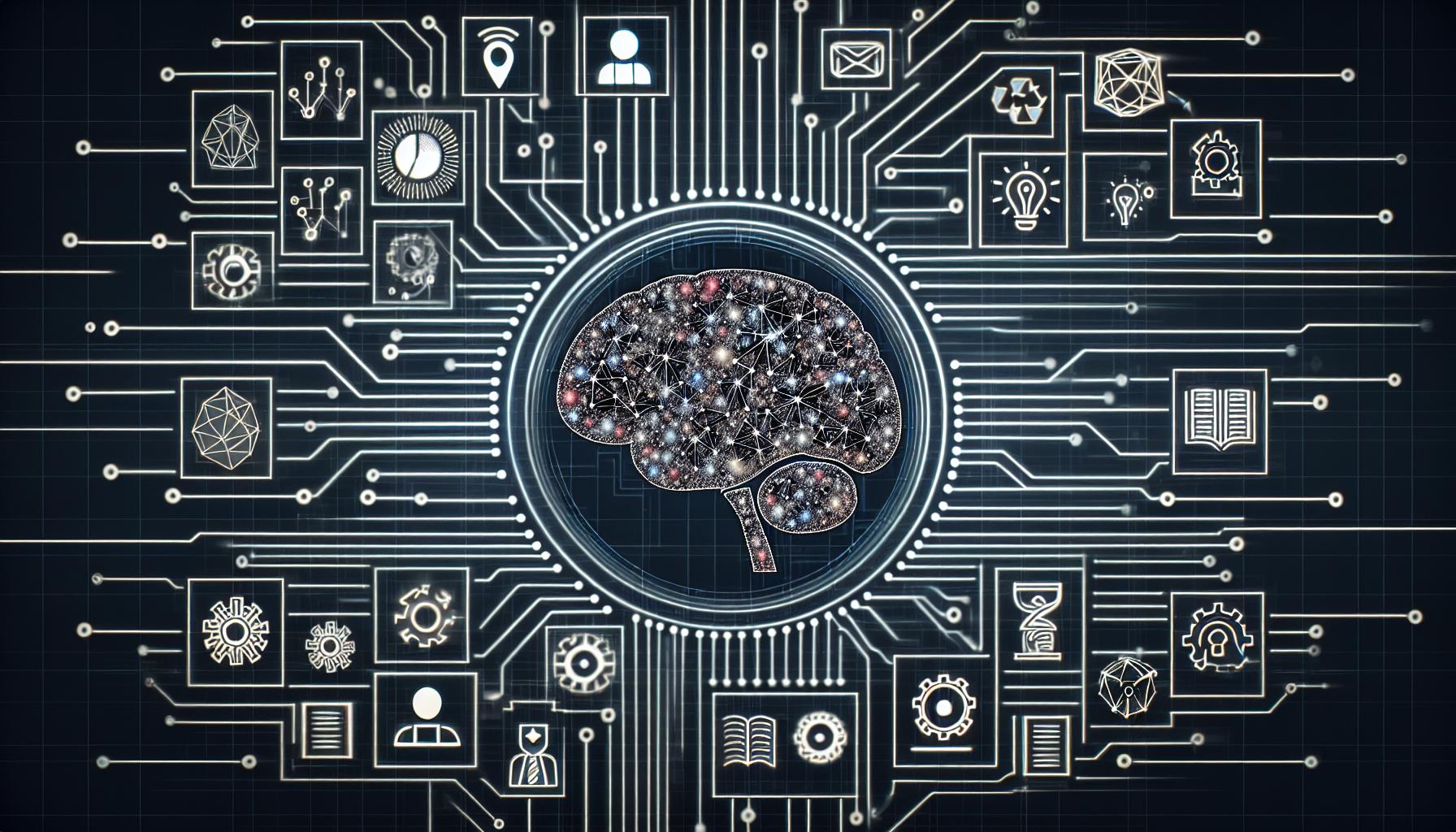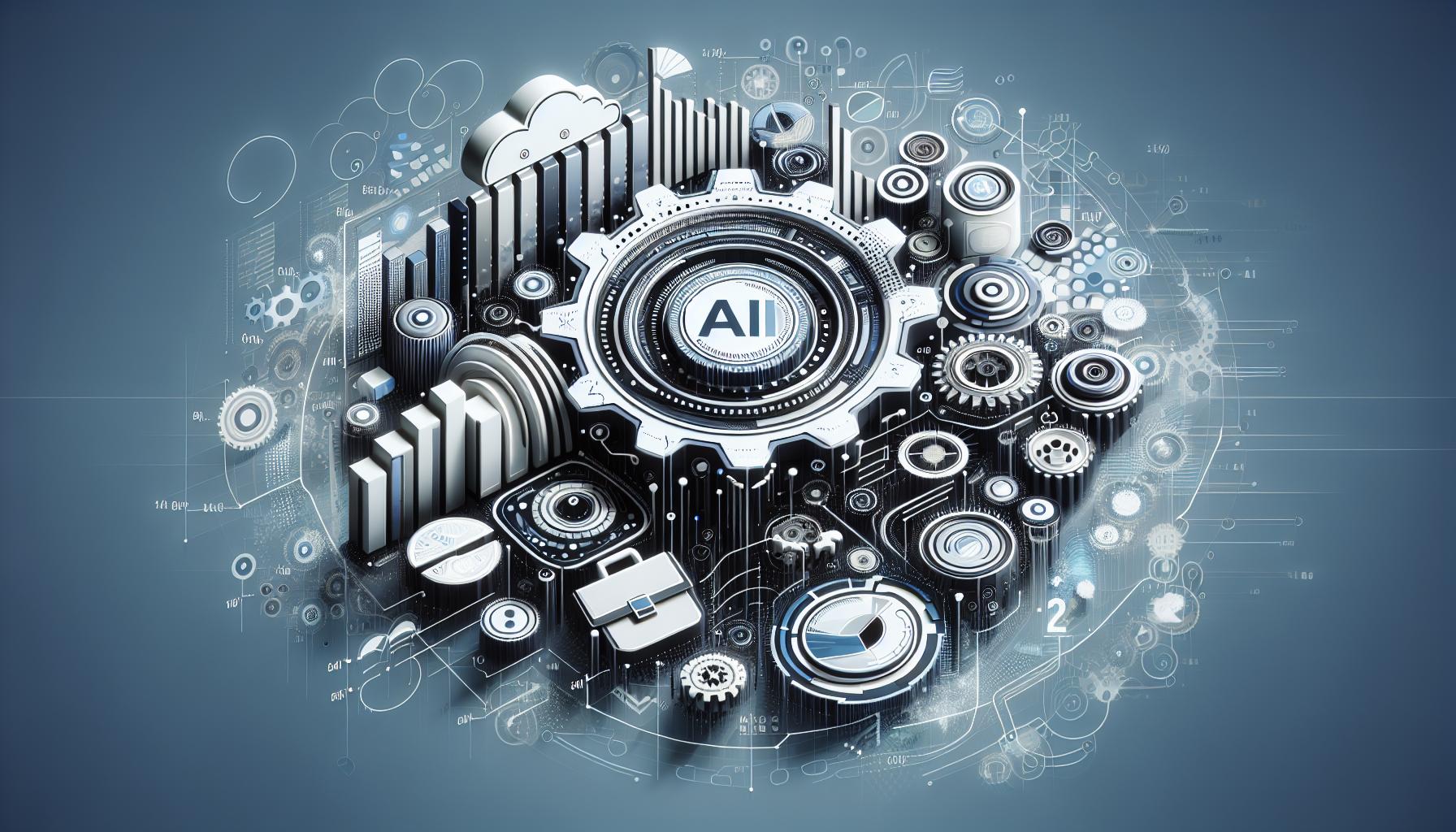A.I. Guys Podcast Ep. 19: Exploring the Revolutionary ChatGPT Search: A Step-by-Step Guide
Introduction to ChatGPT Search
In the rapidly evolving landscape of artificial intelligence, OpenAI has once again made waves with the introduction of ChatGPT Search. This innovative AI search tool redefines how users access and interact with information online. By integrating the simplicity of ChatGPT's chatbot interface with the vast resources available on the web, ChatGPT Search allows users to obtain precise and current answers effortlessly. No longer do users need to navigate through separate search engines; instead, they can access real-time data such as sports scores, news, and stock prices directly within their ChatGPT conversation.
Key Features of ChatGPT Search
Enhanced AI-powered Web Search
One of the standout features of ChatGPT Search is its enhanced AI-powered web search capabilities. Users can now receive instant answers accompanied by direct links to relevant sources, creating a seamless search experience without ever leaving the chat interface. This integration of natural language processing with web search is transforming the way we retrieve information, making it more intuitive and efficient.
Using ChatGPT Search
Accessing ChatGPT Search is simple and user-friendly. To get started, users need to visit ChatGPT by navigating to chatgpt.com on either a desktop or mobile device. Once there, selecting the GPT-4o model enables the ChatGPT Search feature. Initiating a search is straightforward: users can either click the web search icon within the text box or type / followed by selecting 'Search' from the menu for quick access. Inputting a query is as easy as typing a question that requires up-to-date information. The search can be regenerated to include additional web content, enhancing the response with current data.
Citations and Sources
ChatGPT Search ensures transparency and reliability by incorporating citations and sources in its responses. Users can hover over inline citations for more context or click to access the source, although this feature is currently available only on the desktop version. Additionally, to view all sources, users can click the Sources button at the end of the response. Some search results might include images, which can be clicked to view their citations and source links, further enriching the search experience.
Conclusion: A New Era of Information Retrieval
OpenAI's ChatGPT Search positions itself as a direct competitor to traditional search engines, prompting them to innovate further. By pairing natural language processing with web search, this AI-powered tool is revolutionizing how we retrieve information, combining conversational interactions with timely, relevant data. It signifies a shift towards more intuitive and efficient information retrieval methods, challenging users to rethink how they interact with traditional search engines.
To stay updated with the latest AI innovations, follow AI Tools Club on Twitter, join their Telegram Channel and LinkedIn Group, and subscribe to their newsletter. As AI continues to evolve, staying informed will ensure users can leverage these tools to their fullest potential.
FAQs
1. How does ChatGPT Search change the way users interact with traditional search engines?
ChatGPT Search offers a more integrated and conversational approach to information retrieval, reducing the need to switch between separate search engines and providing direct access to real-time data within a single interface.
2. What impact might the integration of conversational AI and web search have on daily information-seeking activities?
The integration of conversational AI and web search can make information-seeking more efficient and user-friendly, as users can receive instant, contextually relevant answers without leaving the chat interface.
3. Are there specific areas or tasks where ChatGPT Search might be less effective compared to traditional search methods?
While ChatGPT Search excels in providing quick and relevant information, it may be less effective for highly specialized or technical queries that require in-depth research or for users who prefer traditional search engine interfaces.
4.What is OpenAI's current focus and strategy?
OpenAI, once a research-focused nonprofit, is now shifting its attention to becoming a major commercial player in the AI industry.
With significant funding and rumors of an IPO, the company appears to be prioritizing the development of revenue-generating AI applications over long-term AGI research.
5.How is Google integrating AI into its products?
Google is strategically embedding specialized AI assistants across its ecosystem of products, such as Google Docs, Sheets, and Search. The goal is to make AI an integral and indispensable part of users' everyday digital experiences, driving widespread adoption.
6. What is Anthropic's unique approach to AI?
Anthropic, a startup, is developing AI models that can directly control computers using natural language commands.
While some express concerns about the scalability and practicality of this approach, it highlights the potential for AI to learn from and automate complex digital tasks.
7. Are photorealistic AI avatars likely to become the dominant interface for AI interactions?
While AI avatars are being promoted for applications like customer support and training, many experts remain skeptical about their widespread adoption. Limitations in real-time rendering and the uncanny valley effect suggest that avatars may remain a niche application rather than the dominant paradigm.
8.What is Apple's rumored plan for integrating AI into its devices?
Rumors suggest that Apple is planning to integrate advanced language AI capabilities, similar to ChatGPT, into its upcoming iPhones through an enhanced Siri assistant. If successful, this could trigger a new wave of mainstream AI adoption and change how users interact with their devices.
9.How might the competition between major tech companies shape the future of AI?
The next few years could see intense competition between tech giants like OpenAI, Google, Apple, and Microsoft as they race to dominate the AI market. This could lead to rapid innovation, new product launches, and the emergence of game-changing AI applications.
10. What opportunities and challenges does the AI revolution present for businesses?
AI offers businesses the potential for increased efficiency, powerful insights, and new avenues for innovation. However, it also threatens to disrupt established business models, automate jobs, and create new challenges around data privacy and security.
11. How might the rise of AI impact individuals and society as a whole?
As AI becomes more integrated into our lives, it raises complex questions about trust, privacy, and the role of technology in society. Balancing the benefits and risks of AI will require ongoing public dialogue and collaboration between diverse stakeholders.
12. Is the AI revolution already underway?
Yes, the AI revolution is no longer a distant concept—it's happening right now, with rapid advancements and increasing integration of AI into products and services we use every day. Staying informed and engaged with these developments will be crucial in the coming years.
13.How ca n I stay up-to-date on the latest developments in AI?
Podcasts like the AI Guys offer accessible and engaging discussions on the latest trends, breakthroughs, and implications of artificial intelligence.By tuning in to expert insights and analysis, you can stay informed and prepared for the changes ahead.




